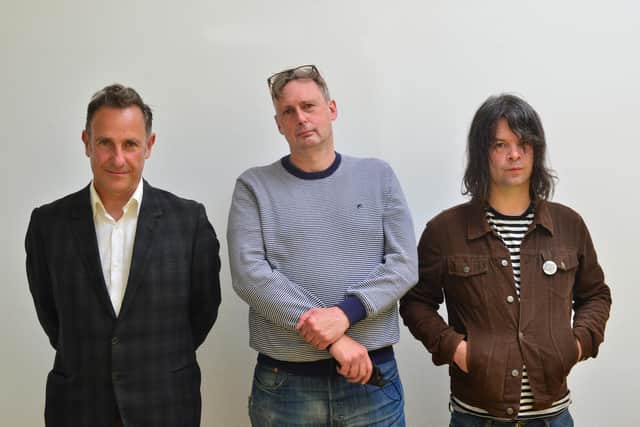Book review: Hungry Beat, by Douglas MacIntyre and Grant McPhee, with Neil Cooper
Every music fan will have their own idea of what constitutes the rock and pop golden years. Writer Simon Reynolds has already heralded the extraordinarily fertile post-punk period in Rip It Up and Start Again, named after an Orange Juice lyric. Orange Juice frontman Edwyn Collins, meanwhile, is one of many eye witness contributors to Hungry Beat, an oral history covering the same period which homes in on Scotland’s post-punk story.
In practise, it is a tale of two cities and, more specifically, two independent record labels and their flawed figureheads – Fast Product founded in Edinburgh by Bob Last and Glasgow’s Postcard Records helmed by Alan Horne. Co-writer Grant McPhee has already covered this territory in his 2015 rock doc Big Gold Dream – the interviews he conducted for the film form the bedrock of the Hungry Beat narrative, fleshed out with additional interviews by arts journalist Neil Cooper and musician Douglas McIntyre, whose first band Article 58 were right where the naïve action was. Despite the existing source material, Hungry Beat “aims to tell a different story to the one regularly regurgitated” – in particular, to acknowledge the key roles of Fast Product’s Hilary Morrison and Edwyn Collins at opposite ends of the M8.
Advertisement
Hide AdNeither Fast Product nor Postcard Records lasted long – just long enough to change everything in their respective cities. “It was about being Fast, it was about being intense, and we were done,” says Last. Both labels were inspired by the DIY ethos but not so much by the music or aesthetic of punk. There were clear stylistic lines – the Glasgow sound was influenced by the lightness and brightness of the US West coast (Byrds, Beach Boys), while Edinburgh danced to a darker, less melodic beat typified by New York’s no wave scene. Postcard camped up the Scottish tartan and shortbread image, Fast Product were influenced by Dada and situationism. Both labels were inspired by Andy Warhol’s Factory.


There is little of the rock’n’roll excess documented in Please Kill Me, the notorious oral history of the New York punk scene. But, appropriately for a scene which was as much about ideas and attitude as music, there is plenty of conceptualising and creative fumbling en route to the gold rush of 1983 when the prime movers started to enjoy commercial success, sometimes in reconfigured line-ups. The authors could go on, but by 1983/4 the centre of gravity had shifted – Orange Juice and Aztec Camera relocated to London, Josef K frontman Paul Haig to Brussels and Alan Rankine of The Associates had played a Harrods-made chocolate guitar on Top of the Pops. The underground had most flamboyantly gone overground.
Hungry Beat, by Douglas MacIntyre and Grant McPhee, with Neil Cooper, White Rabbit, £20. There will be a launch event at La Belle Angèle, Edinburgh, on 19 November, with interviews, readings and a live performance by The Hungry Beat Group (featuring members of Aztec Camera, The Bluebells, Article 58, Josef K/Orange Juice), https://undergroundsolushn.com/hungrybeat.html